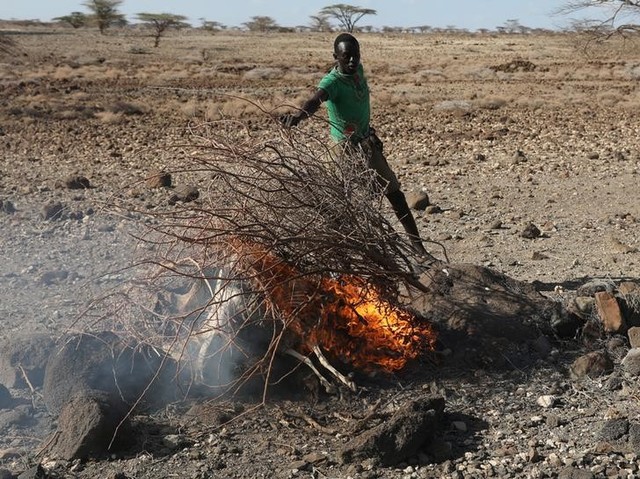Fearing disease, Kenyans burn animal carcasses as drought deepens


By Reuters
Villagers in northern Kenya have begun to burn piles of animal carcases, hoping to head off an outbreak of disease as their livestock starve to death in the region’s worst drought in five years.
The smell of death hangs heavily over Lake Turkana and dried animal corpses dot the cracked mud where the lake has receded, leaving boats stranded on the dry land.
Nomadic communities store their savings in animals rather than banks and each carcass is a major loss.
The Kenyan government said 2.7 million people are affected by the drought. It estimates 20 percent of livestock has died in the arid and semi-arid counties, an area comprising about 80 percent of Kenya’s landmass.
“It is the worst drought since 2011,” said James Oduor, head of Kenya’s National Drought Management Authority.
The government is running a “destocking” program, which pays herders for animals they would struggle to sell. It pays 2,000 Kenya shillings ($20) for a goat or a sheep, and 15,000 Ksh for a cow. That’s half of the price of a healthy animal.
“If they are in good condition, they can be moved to graze elsewhere. When they cannot be moved, the animal is slaughtered so the community can benefit from more food,” said Oduor.
Villager Lokuukwi Achembe said his village lost around 2,000 goats.
“This is our food and our way of living,” he said sadly.
On the southern short of Lake Turkana, famed for the harsh beauty of its landscape, residents are burning carcasses to stop the bodies from infecting water supplies if the rains come.
Village elder Lowake Alishu said, “We are collecting the goats around the manyatta (group of thatched huts) to stop the spreading of disease.”
($1 = 102.8500 Kenyan shillings)